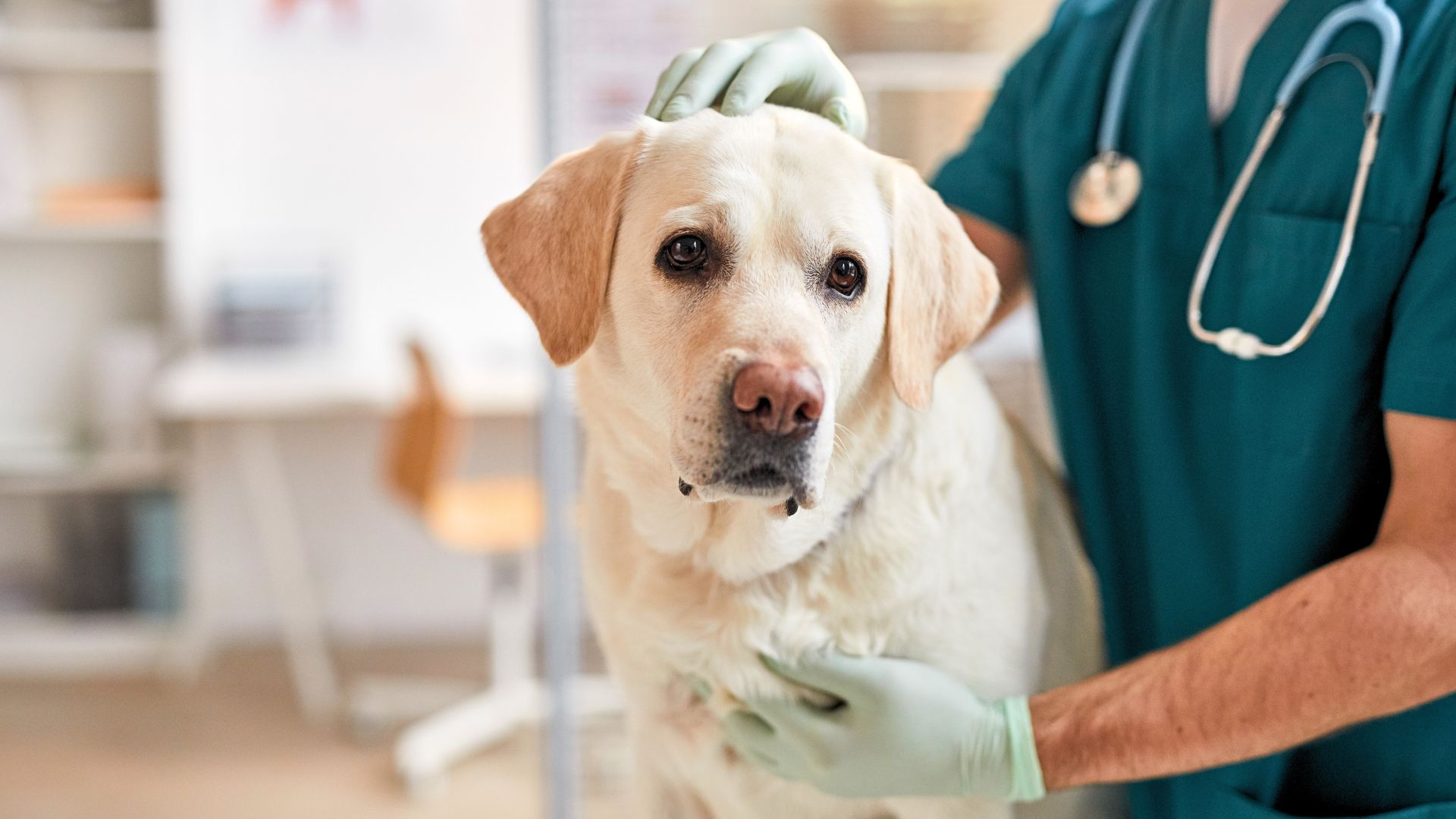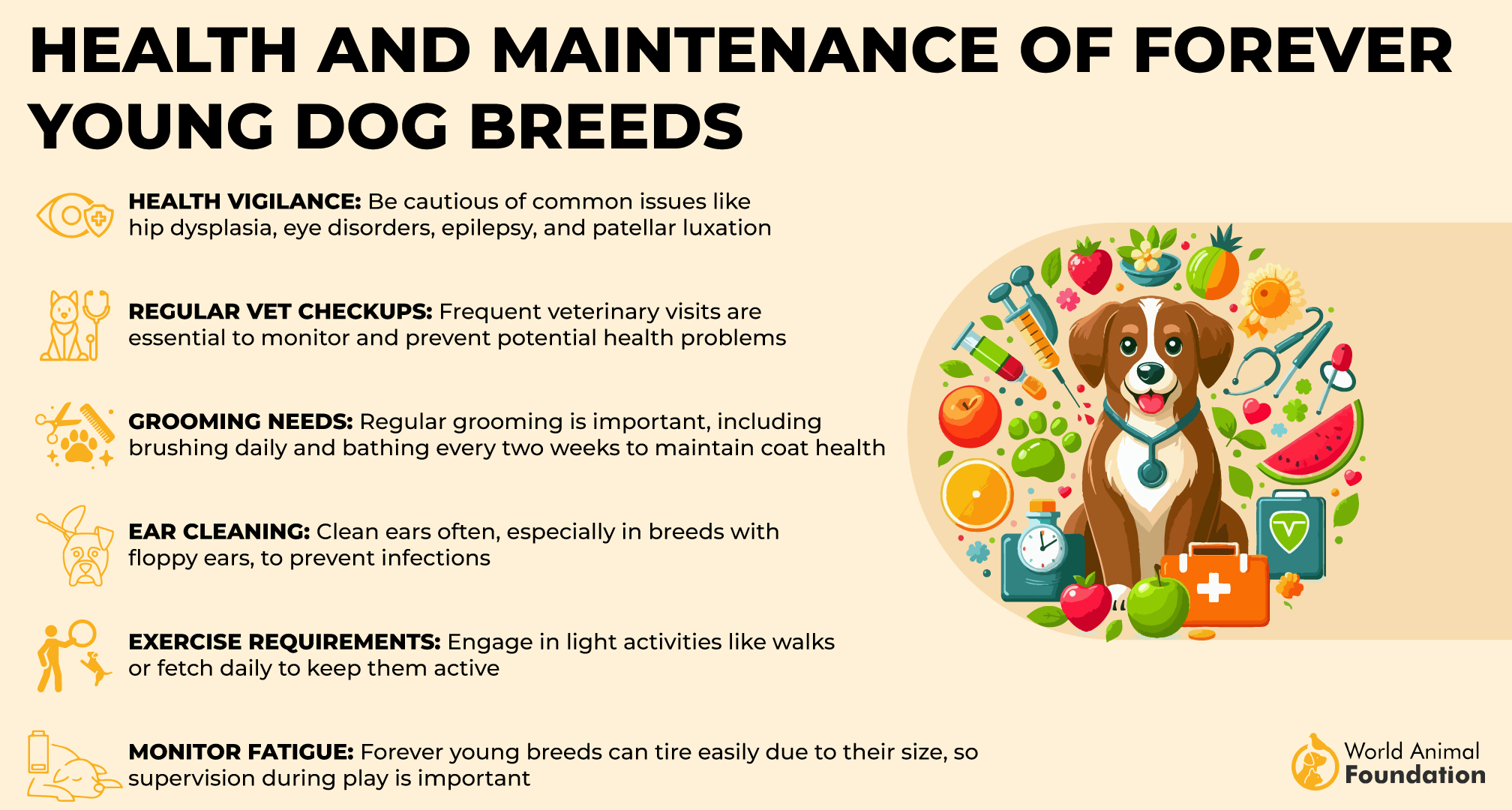In the world of pet ownership, ensuring our furry companions are healthy and happy is a top priority. For those interested in breeds that typically require fewer trips to the vet, choosing wisely can lead to peace of mind and fewer healthcare expenses. Certain breeds have been known for their robust health and low maintenance needs, making them ideal for those who prefer a low-vet-visit lifestyle. This article explores seven dog breeds that, due to their genetic traits and overall resilience, rarely need a vet visit, providing insights for potential dog owners on making an informed choice for a healthier and less worrisome companionship.
Did you know some dog breeds are naturally healthier and require fewer vet visits? With the right care, these dogs can live long, happy lives with minimal trips to the clinic. Fewer vet visits mean less stress for both you and your pet, allowing you more quality time together.
Certain breeds, known for their strong health and resilience, thrive with regular exercise, a balanced diet, and preventive care. While all dogs benefit from vet check-ups, these breeds typically stay healthy longer, making them ideal for owners who prefer a more straightforward, low-maintenance pet experience. Let’s dive into these breeds that should rarely need a vet visit.
Dog Breeds That Should Rarely Need A Vet Visit
1. Australian Terrier
The Australian Terrier is a generally healthy breed with a reputation for requiring few vet visits. They have no major hereditary health problems, which makes them a lower-risk dog in terms of frequent vet trips. Proper diet, exercise, and regular grooming are typically all that’s needed to keep them in good shape.
While the Australian Terrier is typically low-maintenance, like all dogs, they can have minor issues. Common concerns include patellar luxation (slipping kneecaps) and occasional skin problems, but these can usually be prevented or managed with regular check-ups and a good care routine.
Their teeth also need attention, as small breeds can be prone to dental issues. Keeping up with vaccinations and routine exams is still important, but this breed is one of the least likely to require frequent trips to the vet.
2. Basenji
Basenjis are highly energetic and require regular physical activity to stay healthy, making them great companions for active owners. Their sleek coat is low-maintenance, and they don’t shed heavily, which helps minimize grooming needs.
Basenjis are relatively healthy dogs and their naturally clean and independent nature makes them easy to care for in terms of hygiene, but they do need regular exercise and mental stimulation to avoid boredom, which could lead to destructive behaviors. They are generally low-maintenance in terms of vet visits if they are kept active and fit.
While Basenjis are not particularly prone to chronic health problems, they do require a certain amount of attention when it comes to their diet and exercise routines. Keeping them on a high-quality, balanced diet and ensuring they get plenty of physical activity can help minimize any health risks. Regular vet check-ups are still recommended, but as long as they are well cared for, Basenjis typically enjoy long, healthy lives with minimal medical intervention.
3. Australian Cattle Dog
The Australian Cattle Dog is a highly energetic breed that requires both physical and mental stimulation. While this breed generally enjoys good health, routine veterinary care is important to prevent potential health issues as they age. Older dogs, in particular, may develop conditions like hip dysplasia or heart disease, which are easier to manage if caught early during regular wellness exams.
Veterinary visits for this breed should include regular screenings such as fecal tests, blood work, and heartworm tests, especially as they mature. Many adult dogs are prone to weight gain or dental problems, both of which can impact their overall health. Staying on top of these concerns with the help of your vet will help ensure your dog remains in peak condition.
Always remember that regular annual checkups and preventive care are essential for maintaining a dog’s health. As your dog ages, keeping a close eye on potential issues such as heart disease or arthritis through routine physical exams and X-rays can ensure a longer, healthier life for your furry friend.
4. Beagle
Beagles are playful, energetic dogs that typically enjoy a healthy lifestyle when given the right care. However, regular veterinary visits are crucial to ensure they stay in top shape. Routine vet visits, like yearly wellness exams, help monitor your pet’s health, check for early signs of issues such as dental disease or obesity, and keep vaccinations up to date. As adult dogs age, they may need more frequent visits to the vet clinic for blood tests and screenings to catch any health conditions before they become serious.
PDSA says that when Beagles reach senior dog status, certain health concerns may arise, such as arthritis or dental disease, which require attention. Maintaining their health through regular check-ups and parasite prevention can help reduce unexpected vet visits. Regular physical exams, including screening tests and blood work, allow you and your veterinarian to notice small changes in your furry family member’s health early on. By addressing issues early, you can prevent more serious problems that might affect your pet’s quality of life later on.
By keeping up with routine vet visits and ensuring that your Beagle receives proper dental care, parasite prevention, and annual wellness checks, you can help ensure they stay healthy throughout their life. Regular check-ups can also help address concerns that may arise, such as heart disease or kennel cough, before they become bigger issues. With the right care, your Beagle can enjoy a long, happy, and healthy life.
5. Jack Russell Terrier
Jack Russell Terriers are active, intelligent dogs that require regular exercise and mental stimulation. To keep them healthy, it’s important to take your dog to the vet for yearly wellness visits. According to PetMD, these check-ups help catch common issues like dental disease or intestinal parasites early and ensure your dog stays on track with vaccinations and preventive care.
As they age, your Jack Russell may face health concerns such as joint problems or eye conditions. Regular vet visits help detect these issues early before they become serious. Many vets recommend routine blood tests and screenings, especially as dogs get older, to keep their health in check and avoid unexpected vet visits.
Routine check-ups play a key role in maintaining your dog’s health and lifestyle. Preventive care, including parasite prevention, helps your Jack Russell stay active and happy, with fewer health concerns over time.
6. Chihuahua
Chihuahuas are small, lively dogs that are relatively healthy but still require regular veterinary care to maintain their well-being. Routine vet visits, such as yearly wellness exams, are essential to catch common issues like dental disease, which is common in small breeds. Preventive care, including vaccinations and parasite prevention, also helps minimize the need for more frequent vet visits as your Chihuahua ages.
As senior dogs, Chihuahuas can be prone to heart disease, dental problems, and joint issues like patellar luxation. Regular check-ups help catch these concerns early, allowing for proper management. Many vets recommend routine blood tests and screenings to monitor your pet’s health, ensuring they stay in great shape and enjoy a long, healthy life.
With proper care and regular vet visits, your Chihuahua can enjoy a healthy, active lifestyle with fewer unexpected trips to the vet’s office. Routine exams and preventive care are essential to keeping your furry family members happy and healthy throughout their life.
7. Greyhound
Greyhounds are elegant, gentle dogs known for their speed and graceful demeanor. Despite their reputation as racing dogs, they’re actually very laid-back and make excellent pets, especially for owners who can provide them with regular exercise. Their short coat is low-maintenance, and they don’t require much grooming beyond the basics.
While they’re generally healthy, these hounds do have a few specific health needs to be mindful of. Because of their slim build, they can be prone to conditions like bloat and heart issues, so regular vet visits are essential to keep an eye on their well-being. As they age, they may also develop arthritis, which can be managed with proper care and treatment.
Greyhounds tend to be low-key at home and often enjoy lounging around after a good run. With the right care and attention, including regular vet visits, they can live long, healthy, and happy lives.
Conclusion
In conclusion, choosing a dog breed that requires fewer vet visits can lead to a smoother, stress-free experience for both you and your furry companion. While regular check-ups are always important, focusing on preventive care and a healthy lifestyle can significantly reduce the need for frequent trips to the vet.
Tip: No matter the breed, establishing a solid routine of exercise, good nutrition, and regular wellness exams will ensure your dog stays in the best health possible—minimizing unexpected vet visits and maximizing your time together!
In conclusion, while no dog breed is entirely immune to health issues, some breeds are known for their robust health and lower frequency of needing veterinary care. These breeds, often characterized by their strong genetics, hardy constitutions, and adaptability, can make for low-maintenance companions when it comes to medical needs. However, responsible pet ownership still requires regular check-ups, a balanced diet, and a healthy lifestyle to ensure these dogs remain in optimal health. Ultimately, choosing a breed known for fewer veterinary needs can be beneficial, but proactive care and attention are crucial to any dog’s well-being.









